Table tennis has taken China by storm, becoming incredibly popular and deeply ingrained in the country’s culture.
The fast-paced sport has captured the hearts of millions, captivating athletes and everyday enthusiasts.
But why exactly is table tennis so big in China?
This article aims to shed light on the factors that have fueled the nation’s love affair with the game, exploring its historical roots, the country’s investment in athlete development, and the spirit of national pride surrounding the sport.
So grab your paddle, put on your game face, and discover why table tennis has become a national obsession in China.
Review contents
History of Table Tennis in China
Introduction of table tennis to China
The introduction of table tennis to China dates back to the early 20th century. The sport was first introduced to the country by British officers of the Royal Navy during their visit to China. The officers set up tables in parks and public spaces, attracting the attention of locals intrigued by this new and exciting game. The Chinese quickly became interested in table tennis, and the sport became famous as a leisure activity.
Early development of table tennis in China
In its early development stages, table tennis was primarily played by intellectuals and students. They recognized the mental and strategic aspects of the game, and it became a favorite pastime in universities and schools. Gradually, more and more people started playing table tennis, turning it into a popular recreational activity across the country. The Chinese Table Tennis Association (CTTA) was established in 1953, further contributing to the growth and organization of the sport.
Table tennis during the Cultural Revolution
The Cultural Revolution, which took place from the mid-1960s to the mid-1970s, significantly impacted table tennis in China. During this period, Chairman Mao Zedong promoted table tennis to foster discipline, patriotism, and unity among the Chinese population. Table tennis matches and tournaments became a way to demonstrate loyalty to the Communist Party and show solidarity with the government’s ideologies. The sport received immense support from the government, leading to its rapid development and mass participation.
Table tennis as a national sport
Table tennis has become more than just a sport in China; it is a part of the national identity. The success and dominance of Chinese players in international competitions have elevated the status of table tennis to that of a national sport. In China, table tennis is seen as a symbol of national pride and achievement. The country has consistently produced world-class players who have secured numerous gold medals in international tournaments, further solidifying its status as a global powerhouse.
Cultural Significance of Table Tennis in China
Table tennis as a symbol of Chinese diplomacy
Table tennis has played a crucial role in diplomatic relations between China and other countries. In 1971 an unprecedented “Ping Pong Diplomacy” occurred when the Chinese national table tennis team visited the United States. This visit played a pivotal role in normalizing relations between the two countries, as it was a significant breakthrough in bridging the gap between the East and the West. Since then, table tennis has been used to promote understanding, cooperation, and cultural exchanges between China and other nations.
Table tennis as a recreational activity
Table tennis is not only a competitive sport in China; it is also a widely enjoyed recreational activity. People of all ages and backgrounds participate in the sport, whether at local parks, community centers, or even in their homes. The accessibility and simplicity of the game make it attractive to a broad range of people. Whether played casually or competitively, table tennis provides individuals a platform to socialize, bond, and have fun.
Table tennis in popular culture
Table tennis has become deeply ingrained in Chinese popular culture. It is frequently depicted in movies, television shows, and literature, often portraying the spirit of determination, perseverance, and discipline associated with the sport. The iconic image of players engaged in intense rallies, accompanied by the bouncing ball sound, has become a symbol of athleticism and agility. Table tennis has also inspired a unique fashion aesthetic, with the attire and equipment used in the sport becoming trendy.
Table tennis and national pride
Table tennis has consistently brought glory and pride to the Chinese people. The dominance of Chinese players on the international stage has fostered a sense of national pride and unity. Their outstanding achievements have become a source of inspiration and motivation for young athletes in China. Chinese players are revered as national heroes and are admired for their dedication, skills, and commitment to excellence. The success of Chinese table tennis players has elevated the status of the sport and solidified its place in the hearts of the Chinese people.
Government Support and Investment
Government initiatives to promote table tennis
The Chinese government has played a critical role in developing and promoting table tennis. Recognizing the potential of the sport, the government has implemented various initiatives to support and expand its reach. The establishment of the CTTA in 1953 was one such initiative, which provided a centralized governing body for table tennis. Additionally, the government has organized national tournaments, training camps, and talent identification programs to nurture young athletes and provide them with opportunities to excel in the sport.
Table tennis academies and training centers
China boasts an extensive network of table tennis academies and training centers. These institutions provide aspiring athletes with access to world-class coaching, state-of-the-art facilities, and comprehensive training programs. Young players are carefully selected and offered scholarships to train in these academies, ensuring they receive the highest quality training and development opportunities. These academies’ meticulous and systematic training methods have produced exceptional Chinese players.
Investment in professional table tennis leagues
The Chinese government has significantly invested in professional table tennis leagues to elevate the sport’s standard and competitiveness. Professional leagues like the China Table Tennis Super League attract high-profile players worldwide. These leagues provide a platform for Chinese players to compete professionally and attract international talent, fostering cultural exchanges and raising the overall level of play.
Table tennis as a national sports program
Table tennis is an integral part of the Chinese national sports program. It receives substantial funding, resources, and support from the government, alongside other national sports. The government’s commitment to the sport is seen in its inclusion in school curriculums, sports universities, and talent identification programs. By integrating table tennis into the national sports program, the government ensures that the sport continues to thrive and produce exceptional athletes.
Role of National Players and Legends
The success of Chinese players in international competitions
Chinese players have consistently dominated international table tennis, winning numerous medals and championships. Their exceptional skills, mental fortitude, and disciplined training have been instrumental in their success. Chinese players have mastered the art of spin, speed, and precision, making them formidable opponents. Their dominance has set a high standard for the sport globally and further propelled the popularity of table tennis in China.
Famous Chinese table tennis players
China has produced many legendary table tennis players who have left an indelible mark on the sport. Players like Zhang Yining, Deng Yaping, and Ma Long are revered icons known for their outstanding achievements and contributions to the sport. These players have inspired countless aspiring athletes to pursue table tennis and become ambassadors for the sport in China and internationally. Their success has elevated the status of table tennis and solidified its place in Chinese sporting history.
The influence of sports idols on young players
Chinese table tennis players serve as powerful role models for aspiring athletes. Young players look up to these idols and aspire to emulate their success. These players’ dedication, discipline, and relentless pursuit of excellence serve as motivation and inspiration. The influence of sports idols goes beyond table tennis skills; it also encompasses values such as teamwork, resilience, and sportsmanship, which young players aim to emulate both on and off the table.
Athlete training and development programs
China has implemented comprehensive athlete training and development programs to nurture young talent. These programs identify promising individuals at a young age and provide them with dedicated coaching, physical conditioning, and mental training. Athletes undergo rigorous training schedules and are molded into disciplined and highly skilled players. Through these programs, China ensures a steady talent pipeline, guaranteeing a bright future for the sport.
Educational Institutions and Talent Identification
Table tennis in school curriculum
Table tennis holds a prominent place in the school curriculum in China. Students are exposed to the sport from a young age, with regular table tennis classes and competitions incorporated into physical education programs. Including table tennis in the curriculum promotes physical fitness, cultivates a love for the sport, and identifies young talents who may excel. This early exposure has contributed significantly to the popularity and success of the sport in China.
Talent identification programs
China has implemented talent identification programs to identify and groom young athletes with potential in table tennis. These programs involve talent scouts who travel across the country to discover young talents. Selected athletes are then provided with specialized training and development opportunities, ensuring they receive the necessary support to reach their full potential. The talent identification programs play a crucial role in maintaining a strong talent pool and sustaining the success of Chinese table tennis.
National Youth Training System
China has established a comprehensive national youth training system for table tennis. The system aims to identify, nurture, and develop young athletes from a grassroots level. Youth training centers are set up nationwide to provide specialized training and coaching to young players.
Promising athletes are selected to represent their regions, providing them with opportunities to participate in national tournaments and gain valuable experience. The national youth training system serves as a stepping stone for young athletes to progress to higher levels of competition.
Sports universities and specialized programs
China is home to several sports universities and specialized programs dedicated to table tennis. These institutions offer comprehensive education and training for aspiring athletes.
Students in sports universities receive academic instruction alongside intensive table tennis training, ensuring a well-rounded education. These institutions provide a supportive environment and access to top-level coaches and facilities, nurturing athletes to reach their full potential.
Public Facilities and Accessibility
Availability of table tennis facilities
Table tennis facilities are readily available and easily accessible in China. Public parks, community centers, and schools are equipped with tables and equipment, providing individuals with opportunities to play the sport.
People can enjoy a game of table tennis at their convenience, contributing to the sport’s widespread popularity and mass participation. The availability of facilities ensures that table tennis remains an inclusive sport that people of all ages and backgrounds can enjoy.
Community centers and parks
Community centers and parks play a vital role in fostering table tennis participation. These venues provide access to facilities and organize friendly matches and tournaments, allowing players to compete and socialize.
The community aspect of table tennis is particularly emphasized in these settings, with players forming lasting friendships and support networks. Community centers and parks serve as hubs for table tennis enthusiasts, promoting a sense of belonging and camaraderie within the table tennis community.
Table tennis equipment affordability
Affordability of table tennis equipment has contributed to the mass participation in the sport. Table tennis equipment such as paddles, balls, and tables are widely available at affordable prices.
This accessibility ensures that individuals from all socioeconomic backgrounds can participate in the sport without financial barriers. The affordability of equipment has played a significant role in encouraging grassroots participation, allowing talented individuals to discover and develop their skills.
Table tennis clubs and leagues
Table tennis clubs and leagues are popular gathering places for table tennis enthusiasts in China. These clubs provide dedicated training, coaching, and competitive opportunities to players of all levels.
Clubs organize regular leagues and tournaments, allowing players to test their skills and compete against others. The club culture fosters a sense of community and provides a platform for players to meet and connect with like-minded individuals who share a passion for the sport.
Popularity and Mass Participation
Table tennis is a popular recreational sport.
Table tennis is immensely popular as a recreational sport in China. People of all ages and skill levels participate in the sport, enjoying it for its simplicity, physical activity, and social aspect.
The accessibility of table tennis facilities and equipment has contributed to its popularity, enabling individuals to play whenever they desire. The ease of learning the basic techniques and rules has also made table tennis a favorite pastime among families, friends, and colleagues.
Role of grassroots participation
Grassroots participation has been fundamental to the growth and popularity of table tennis in China. The sport’s accessibility and affordability have allowed individuals from diverse backgrounds to engage and participate.
Local clubs, schools, and community centers have been crucial in nurturing grassroots involvement by organizing coaching programs, local tournaments, and friendly matches. The emphasis on grassroots participation ensures a continuous influx of new players and keeps the sport vibrant and relevant.
Table tennis competitions and events
Table tennis competitions and events take place at various levels, catering to players of all abilities. The Chinese Table Tennis Association organizes national tournaments that attract top players nationwide.
These tournaments provide a platform for elite athletes to showcase their skills and inspire and motivate amateur players to improve and reach their potential. Events such as the China National Games and the Chinese Table Tennis Super League receive significant attention and contribute to the sport’s popularity and mass participation.
Social and health benefits of table tennis
Table tennis offers numerous social and health benefits, contributing to its popularity in China. The sport promotes physical fitness, agility, and hand-eye coordination. Regular table tennis sessions allow individuals to engage in physical activity, improving overall health and well-being.
Additionally, table tennis fosters social interaction, teamwork, and friendly competition, creating community and camaraderie among players. Table tennis’s social and health benefits are significant factors in its widespread popularity and participation.
Media Coverage and Broadcasting
Television coverage of table tennis
Table tennis enjoys extensive television coverage in China. Major tournaments, including the World Table Tennis Championships and the Olympic Games, are broadcast live, attracting millions of viewers.
The matches are accompanied by expert commentary, analysis, and interviews, allowing viewers to connect with the sport more resounding. The comprehensive television coverage has popularized table tennis, making it a highly watched and followed sport nationwide.
Table tennis tournaments and sponsorships
Table tennis tournaments in China receive significant attention from both broadcasters and sponsors. Major tournaments, such as the China Open and the China Table Tennis Super League, attract sponsorship from corporations wanting to align their brand with the sport’s popularity.
These sponsorships financially support tournaments, ensuring their successful organization and widespread coverage. The support from sponsors has resulted in better facilities, increased prize money, and higher production values, further enhancing the appeal and prestige of table tennis.
Online streaming and media platforms
The rise of online streaming and media platforms has revolutionized how people consume table tennis content in China. Live streaming platforms provide fans access to matches, interviews, and behind-the-scenes content.
These platforms cater to a younger audience who prefer on-demand content, allowing them to follow their favorite players and stay updated with the latest table tennis news. The availability of table tennis content on various online platforms has diversified the viewing options and expanded the audience reach.
Table tennis as a spectator sport
Table tennis has gained popularity as a spectator sport in China due to its compelling and fast-paced nature. Spectators flock to arenas to witness the high-intensity matches and support their favorite players. The electrifying atmosphere, filled with cheers and anticipation, creates an immersive experience for spectators.
Vocal support from the crowd adds to the excitement and energy of the games. The growing popularity of table tennis as a spectator sport has further enhanced its overall appeal and contributed to its status as a national sport.
Coaching and Training Methods
Development of coaching techniques
China has been at the forefront of developing innovative coaching techniques in table tennis. Coaches continuously study and refine training methods to maximize their players’ potential.
They focus on improving technical skills, tactical awareness, and mental resilience. Chinese coaches are known for their attention to detail, biomechanical analysis, and video analysis to identify weaknesses and areas for improvement. The continuous development of coaching techniques ensures that Chinese players remain at the cutting edge of the sport.
Training methods and philosophies
Chinese table tennis training methods emphasize discipline, hard work, and repetition. Players undergo rigorous and structured training schedules, often for multiple hours daily. The “10,000 hours rule” is embraced, signifying that individuals must practice extensively to achieve mastery.
Training sessions focus on developing technical skills, physical conditioning, and mental strength. Coaches instill in players a strong work ethic and a competitive mindset to excel in high-pressure situations.
Technology in table tennis training
China actively incorporates technology in table tennis training to provide players with a competitive edge. Innovations such as sensors, motion analysis, and virtual reality systems enhance performance and technique.
These technological advancements allow players and coaches to analyze and improve stroke mechanics, footwork, and gameplay. Integrating technology in training has led to more precise and effective coaching methods, contributing to the success of Chinese table tennis.
Global influence on Chinese coaching
Despite China’s dominance in table tennis, the coaching staff remains open to adopting and adapting foreign coaching techniques. Chinese coaches study coaching methods from around the world, observing different playing styles, training methodologies, and tactical approaches.
This openness to global influences enriches the coaching staff’s knowledge and allows them to incorporate the best elements into their training programs. The Chinese coaching staff’s willingness to learn and evolve ensures that the country maintains its edge amidst increasing international competition.
International Collaboration and Exchange
Table tennis diplomacy
Table tennis has been instrumental in fostering diplomatic relations between China and other nations. The aforementioned “Ping Pong Diplomacy” between China and the United States is a notable example. China has since utilized table tennis for cultural exchange and engagement with other countries.
Hosting international tournaments, exchange programs, and friendly matches allows for fruitful collaborations and strengthens bilateral relations. Through table tennis diplomacy, China has positioned itself as a global leader in sports diplomacy.
Collaboration with international organizations
China has actively collaborated with international table tennis organizations to promote the sport and host prestigious tournaments.
The International Table Tennis Federation (ITTF) has recognized China’s contribution to the sport and awarded the country hosting rights for various international events. These collaborations ensure that China remains at the forefront of table tennis globally and facilitates cultural exchanges between players from different countries.
Exchange programs and international tournaments
Exchange programs and international tournaments are vital in providing opportunities for Chinese players to compete against foreign opponents and gain exposure to diverse playing styles.
These programs expose athletes to different training environments, coaching philosophies, and competition levels, broadening their horizons and deepening their understanding of the sport. The exchange programs and international tournaments also facilitate cross-cultural exchanges, nurturing friendships and fostering a spirit of international sportsmanship.
Global recognition and influence
China’s unparalleled success in table tennis has garnered global recognition and established the country as a dominant force in the sport. Chinese players and coaches are highly sought after for their expertise and are often invited to conduct training sessions and coaching clinics worldwide.
Their success and influence have inspired many countries to adopt Chinese training methods, study their tactics, and aim to replicate their achievements. China’s global recognition and influence testify to the country’s table tennis prowess.
In conclusion, table tennis is unique in Chinese culture and has an extensive history deeply embedded in the nation. From its humble beginnings as a leisure activity to becoming a symbol of national pride, table tennis has flourished in China.
Government support, investment, and initiatives have played a significant role in its development. At the same time, the success of Chinese players, coaching techniques, and talent identification programs have made China a global powerhouse in the sport. Table tennis in China is not just a game but a way of life that continues to inspire, motivate, and unite people nationwide.


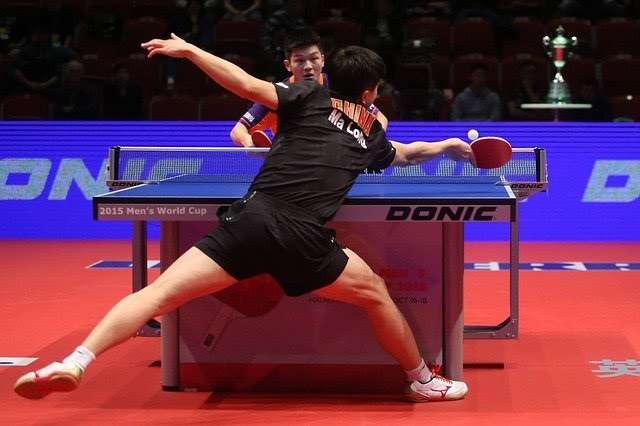
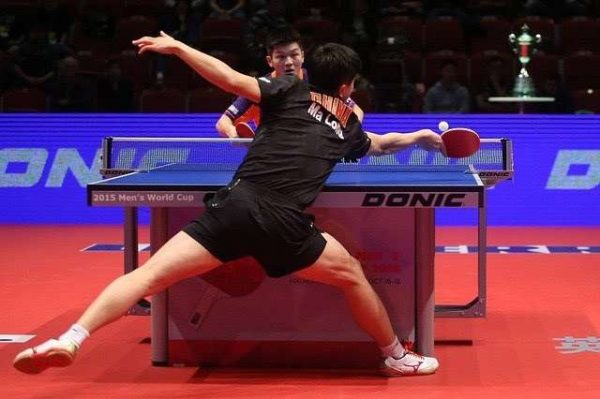
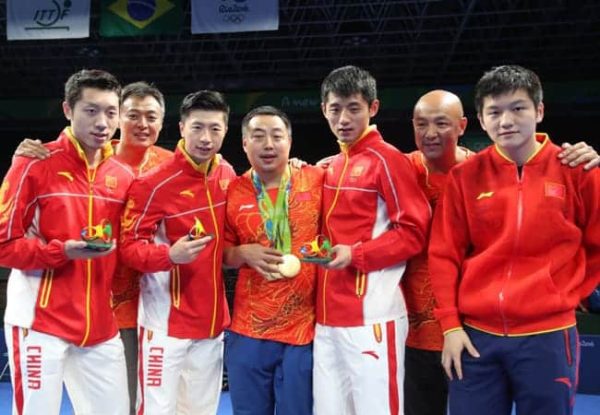
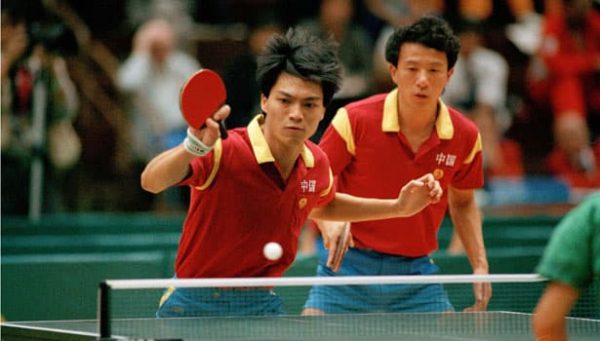




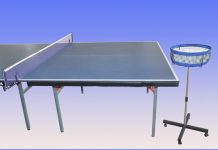
















![Best Outdoor Dartboards [Reviews and Buying Guide 2024] Best Outdoor Dartboards](https://gamersets.com/wp-content/uploads/2022/12/Best-Outdoor-Dartboards-100x70.jpg)
![Best Mini Air Hockey Table [Reviews & Buying Guide 2024] Best mini air hockey table](https://gamersets.com/wp-content/uploads/2022/10/Best-mini-air-hockey-table-100x70.jpg)







